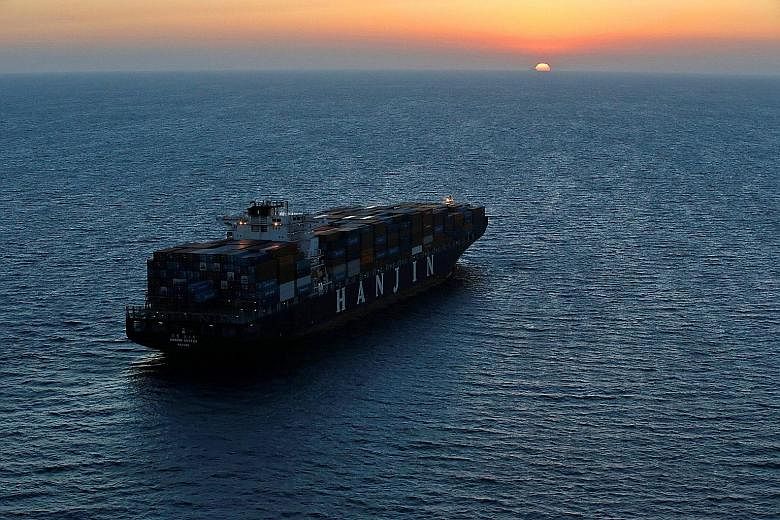CHICAGO • The collapse of Hanjin Shipping will raise the cost to United States businesses and consumers of a wide range of imported goods, from furniture and clothing to fresh fruit and frozen meat, according to federal agencies, shippers and retailers.
With Hanjin's future in doubt, carriers have announced they will hike container freight rates by as much as 50 per cent beginning next month, as retailers scramble to secure shipping ahead of the peak year-end holiday season, industry sources said.
About US$14 billion (S$19 billion) worth of cargo was stranded by the collapse of the seventh-largest container carrier in the world.
"Right now, there is much more (freight) demand than there is supply. People are scrambling to find a carrier with space," said Mr Peter Friedmann, executive director of shipping industry group Agriculture Transportation Coalition.
"But the biggest challenge right now is for people with cargo on Hanjin ships."
Cargo shippers have been forced to pay thousands of dollars in fees to terminal owners and truckers to reclaim their goods from Hanjin ships to prevent perishable foods from spoiling and to avoid losing sales because goods are not available when customers want them.
Hanjin would normally pay the fees for port use and container handling as part of its freight services. With the South Korean shipper in receivership, it is unclear if shippers would recoup any added costs that they pay out of pocket to retrieve their goods.
Singapore-based crop shipper Agrocorp International said that DP World, the terminal operator at Port of Vancouver, last week held 24 containers - or 600 tonnes - of its Canadian lentils that were bound for India and Bangladesh, demanding a release fee of US$450 per container.
Industry analysts expect the freight rate increases to be short- lived as more shipping capacity comes on line. "The Hanjin ships are going to be off the market for the holiday seasons. It will take several months to sort through the legalities, but any rate increase will be temporary," said Navigistics Consulting president David St Amand.
In the short term, retailers are likely to take hits to their profit margins as they try to shield customers from any more price rises in a hyper-competitive retail market.
"We believe (the Hanjin collapse) will likely increase our short- to medium-term ocean freight costs, which will minimally impact product cost in all of our operating segments to varying degrees. However, inventory availability is good," said Hooker Furniture chief executive Paul Toms on Thursday.
Hanjin's collapse could wreak havoc on port operations and shipping lines over the next two to three months and could impact trade between the US and South Korea, the US Department of Agriculture said in a report published on Thursday.
REUTERS

